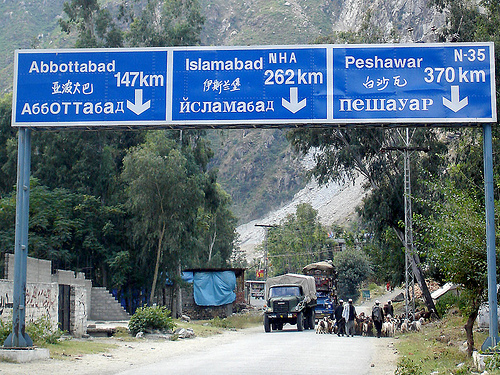DEHLI, INDIA --I wrote over a month ago of a prevalent strain of India-skepticism that focuses on its rampant poverty. I said then that this was not the greatest threat to the country, and I continue to believe that. But that doesn't mean it's not a major humanitarian concern. And since the Indian state has, as I said, bigger fish to fry, antipoverty work has fallen to NGOs.
These groups love working in India. Though the problem of poverty here is less acute than that of many Sub-Saharan African countries, India has the great benefit of being easy to travel to and full of English speakers. Look at the newest crop of 'social enterprises,' and you will find an astonishing number of India-focused projects.
While there, I had a chance to check out several of them, but I want to highlight two: development consultancy Lend-a-Hand and women's rights group ALBA.
Lend-A-Hand India is a meta-nonprofit, an organization that consults with local charities, identifies projects with sound business models and offers up manpower and funds to help them expand. In selecting local partners for L-A-H-I, husband-and-wife founders Rajesh Gilda and Sunanda Mane look for organizations with the capacity to deliver economic opportunity within rural village life. The goal, says Gilda, is to tackle both rural poverty and urban overpopulation. Relying heavily on the reach of new technologies, Gilda and Mane are establishing schools, professional training centers and lending facilities to help the poor join the global economy without leaving home. Since kicking off (with start-up funding of $500) in 2007, Gilda and Mane have reached over 10000 youth, and several have gone on to start their own companies. That's nothing to sneeze at.
The ALBA Collective, a new venture from a team of human rights lawyers in Finland and the United States, is a women's rights group looking to partner with veteran Indian nonprofit SEWA.
SEWA is a trade union of self-employed women, from embroiderers to potters to farmers. SEWA organizes these women—1 million of them--regionally and nationally so that they can pool their own resources to better their businesses and create their own social safety nets. SEWA members with experience at the produce markets help their home artisan sisters, for example, find buyers for their product. Members run their own bank, health system and educational programs for themselves and their daughters. Crucially, SEWA's projects are controlled by their beneficiaries.
The ALBA Collective aims to improve the quality of craft products SEWA members are selling, by giving the women designer patterns to work from. When I met them in Mumbai, ALBA's co-founders explained that they believe these designer items will have higher sale values and larger markets than the more traditional clothes SEWA distributes today. This argument is built on the assumption that the demand for SEWA's current inventory—traditional ethnic products—is falling. That might well be, but SEWA's financial figures don't yet show it. Moreover, SEWA seems quite committed to the "ethnic" look of its products, which the organizers told me should be regarded as "Wearable Art."
More problematic still, ALBA frames its fashion project in the context of human rights, pointing out that women's economic empowerment leads to expansions of civil rights and positing that the link between economics and rights in India is weakening. The first point is widely acknowledged, but it's something SEWA is explicitly committed too. The second point strikes me as questionable, especially given pro-women legislation moving through Parliament this week.
The ALBA Collective's model is premised on identifying failures in the models of its local partners and presenting itself as a solution. That is rather the opposite of Lend-a-Hand's model, which identifies successes and then asks locals "How can we help?" In my travel across South Asia, I've been stunned by the number of nonprofits who make ALBA's mistake.
The problem is particularly acute among groups targeting women. Because the problems women face are both material and cultural, women's groups often fall back on the claim that women in the developing world don't know what they want and need. Then NGOs proceed to fulfill the wants and needs that they, not the local women, have identified.
For example, there is an obsessive focus among international NGOs on supplying education for girls in South Asia. Yet such ventures can sometimes hurt the girls they are supposed to benefit. Explains Hina, a former principal of a Karachi charity school, "So long as poor men are uneducated, they are not going to let educated girls leave home to work. Indeed, they might retaliate against them." Indeed, she encourages international NGOs to stop focusing on women per se, and to acknowledge instead that overall economic growth and overall improvements in social services are what poor women need most. I describe her argument in more detail in this video interview for BloggingHeads TV.
The key insight is that international NGOs need to be much more sensitive to what locals need. Granted, without setting up fulltime shop inside India (as Lend-A-Hand has done), or Pakistan, or indeed any developing country, it's hard to have one's ear to the ground. But somehow, it has to be done. I'm hardly the first to push for more results-oriented approaches to aid. William Easterly in particular has made a career of this argument. But there's value in repetition, sometimes, so I'm adding my voice to his here.




